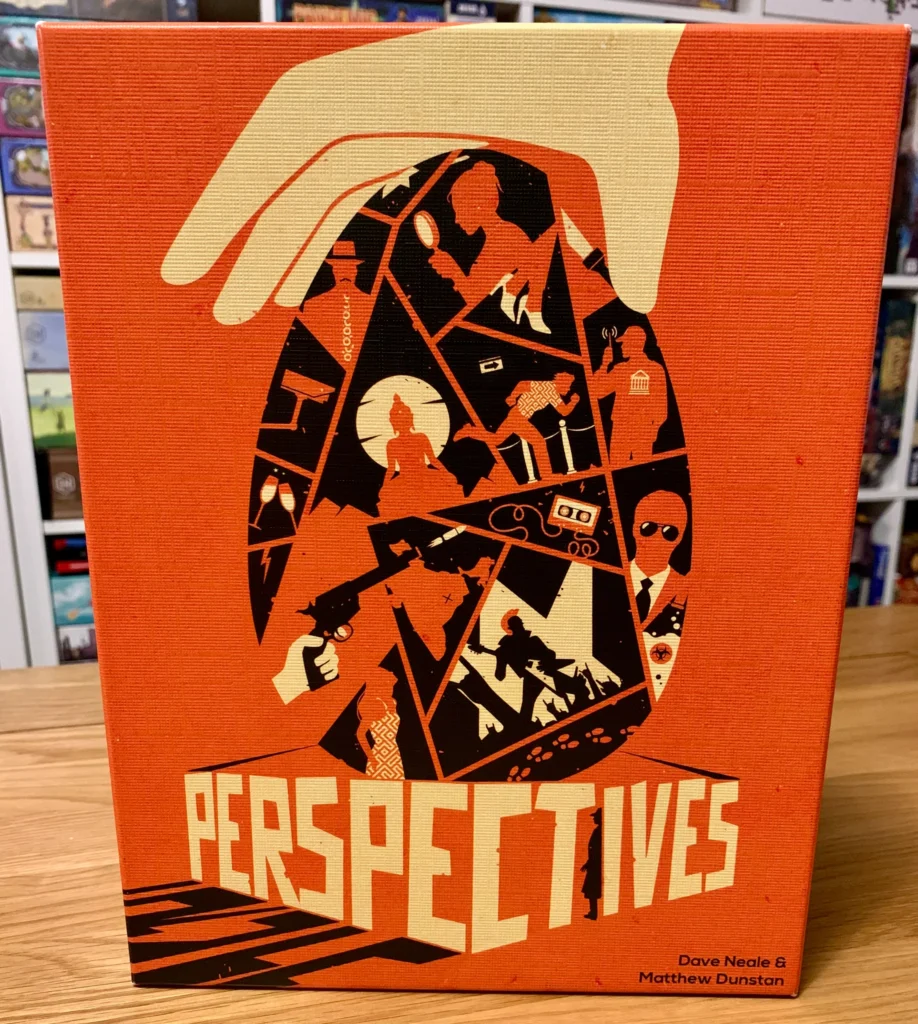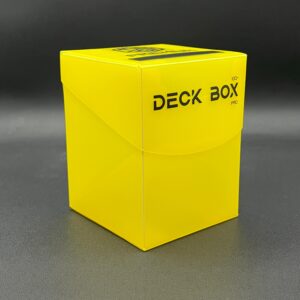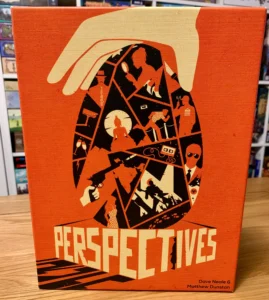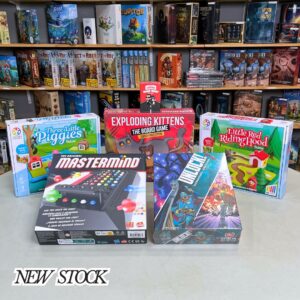Do You See What I See?
If you’ve read any of my reviews before, you’ll know I’m a big fan of puzzle games. I usually play them with my daughter—partly because her sharp thinking helps, but mostly because we love the thrill of cracking a new challenge together. Thankfully, most games we try are hits, but Perspectives ended up being one of those rare misses for us.
A Game of Hidden Clues
The core mechanic of Perspectives revolves around hidden information—each player holds cards that only they can see, and you must work together by describing what’s on them to solve the case. While this is an interesting twist on cooperative deduction, it didn’t quite click with our preferred playstyle.
We like having all the puzzle pieces in front of us, freely examining and rearranging clues as we brainstorm. The restriction of not being able to immediately access every card made the experience feel disjointed—like we were working together, yet somehow not fully collaborating. Of course, this is exactly what the game intends—forcing players to communicate carefully—and for that, I can’t fault its design. But for us, it led to constant backtracking: “What was on that card again?” or “Did we miss anything?” Even with note-taking, it became frustrating.
You can reveal cards at the cost of points, but even though we don’t usually care about scores (we’re in it for the solve), doing so felt like cheating—like we’d failed the game’s core challenge.
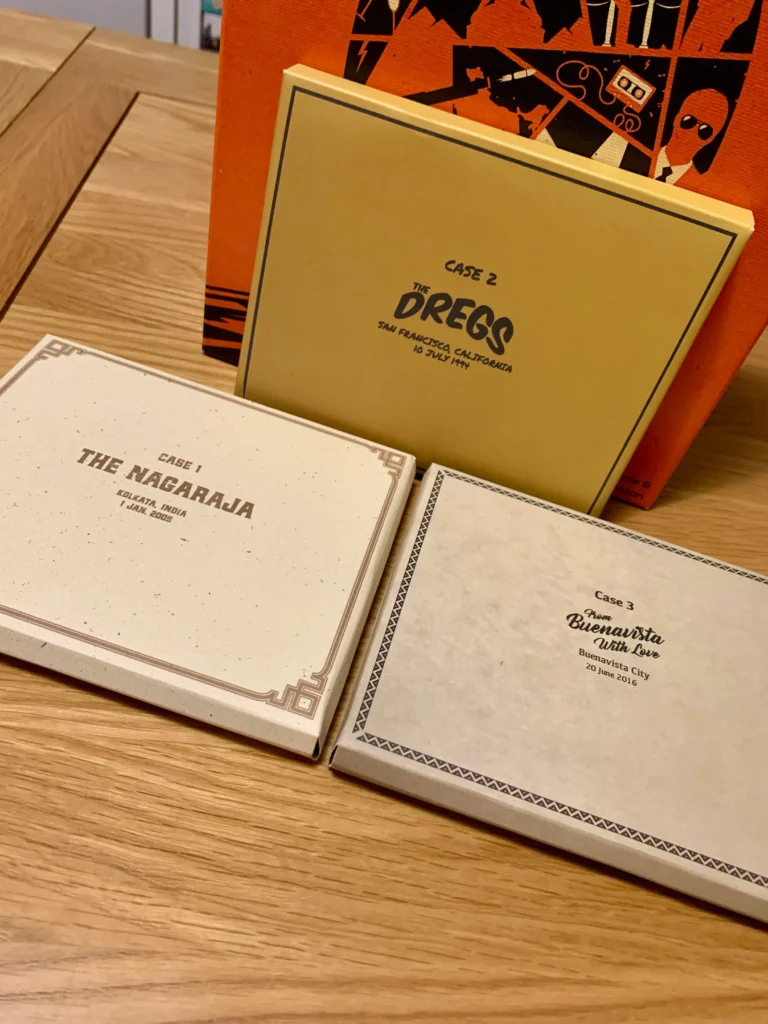
Player Count: Finding the Right Balance
I’m curious how Perspectives plays at different player counts. With just two of us, handling six cards each felt overwhelming—too much to describe and track. But I wonder if, at six players, having only two cards each might leave some players with too little to contribute, especially if their clues get solved quickly. What’s the sweet spot? If you’ve played it, let me know your thoughts!
A Fresh Take on Cooperative Puzzles
Despite our personal gripes, I don’t think Perspectives is a bad game—far from it. A quick glance at BoardGameGeek shows plenty of glowing reviews, and I can see why. The hidden-information aspect adds a unique layer to puzzle-solving, ensuring everyone contributes. Even if someone isn’t typically the “solver” in your group, their ability to describe their cards could be the key to cracking the case—a great confidence booster for quieter players.
While I usually prefer lower player counts for puzzle games, Perspectives might actually shine with more people. It encourages lively discussion, debate, and even some table banter, making it feel almost like a party game for close-knit groups who enjoy cooperative challenges.

Final Thoughts: Not for Us, But Maybe for You
Will we revisit Perspectives? Probably not. But if the idea of a deduction game where communication is limited by hidden clues sounds intriguing to you—or if your gaming group thrives on structured teamwork—then I’d absolutely recommend giving it a shot. It’s a well-crafted game that just didn’t align with our preferences. And hey, that’s the beauty of board games—there’s something out there for every perspective.
(No head-in-hands emoji needed.)
